Minimum Wage To Increase To $15.50 Per Hour For All California Employers
By Admin December 08, 2022 Category: Business Law
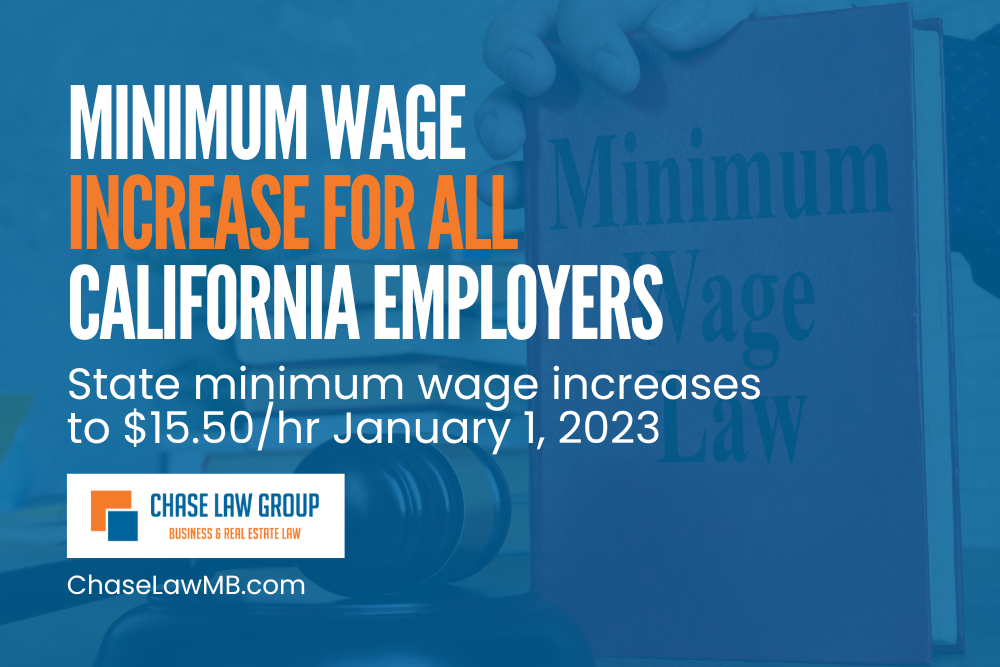
Effective January 1, 2023, the state minimum wage will increase to $15.50/hr. Note that certain cities, including City of Los Angeles ($16.04 per hour) and Unincorporated County of Los Angeles County ($15.90 per hour) have a slightly higher minimum wage. Employers must pay their employees pursuant to whichever law affords employees the highest minimum wage. Also increases in the state minimum wage requires that exempt employees must be paid twice the state minimum wage for full-time employment (40 hours per week). Therefore, as of January 1, 2023, most exempt salaried workers must be paid no less than $64,480 to retain... READ MORE

The Importance of Writing A Business Plan & Its History December is National Write a Business Plan month which is a fitting time for entrepreneurs to be inspired to put a business plan in motion to create the future they desire. On average the 500+ million business owners around the world have at least two to three competitors, so writing or revisiting your business plan before the new year can put you at an advantage above your competitors, help you obtain funding, and have a strategy for reaching customers. Whether your business is new or old, having a plan to... READ MORE
New Employment Laws Coming in 2023: Time to Update Your Employee Handbooks
By Admin November 10, 2022 Category: Business Law
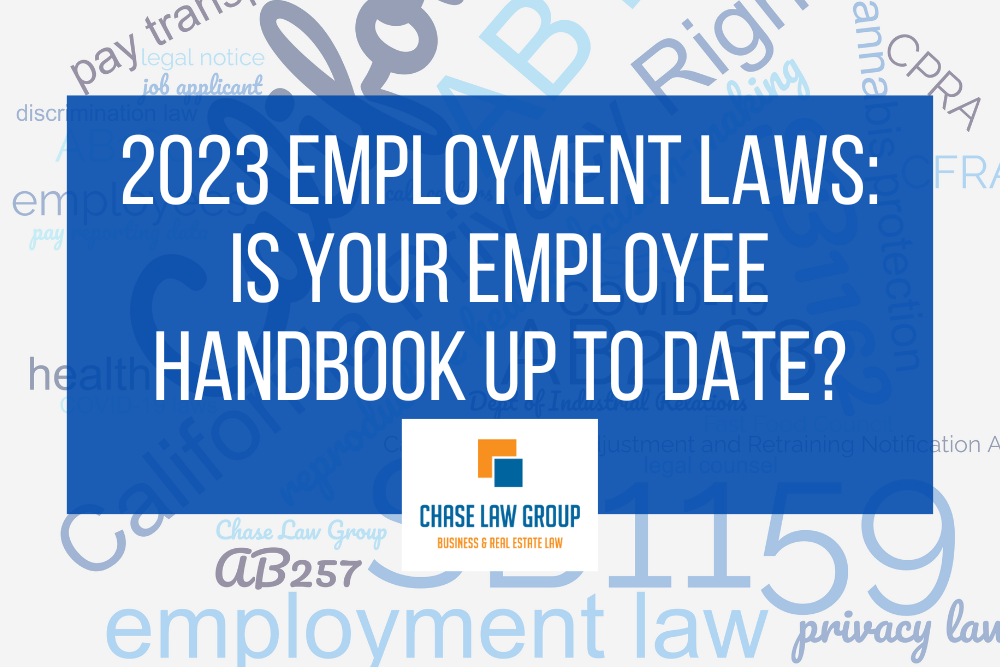
It's that time of year when we update you on upcoming changes to the employment law landscape and for you to take the opportunity to update your employee handbooks and policies. Below we set forth the newly passed legislation that that takes effect January 1, 2023 that impacts employers. Expansion of CFRA Leave for Designated Person AB 1041 expands who an employee can take leave to care for under both the California Family Rights Act (CFRA) and California’s paid sick leave law. Beginning January 1, 2023, employees can take CFRA leave or paid sick leave to care for a “designated... READ MORE
California Extends Supplemental Paid Leave Through End of 2022 for Employers with 26 or More Employees
By Admin October 12, 2022 Category: Business Law
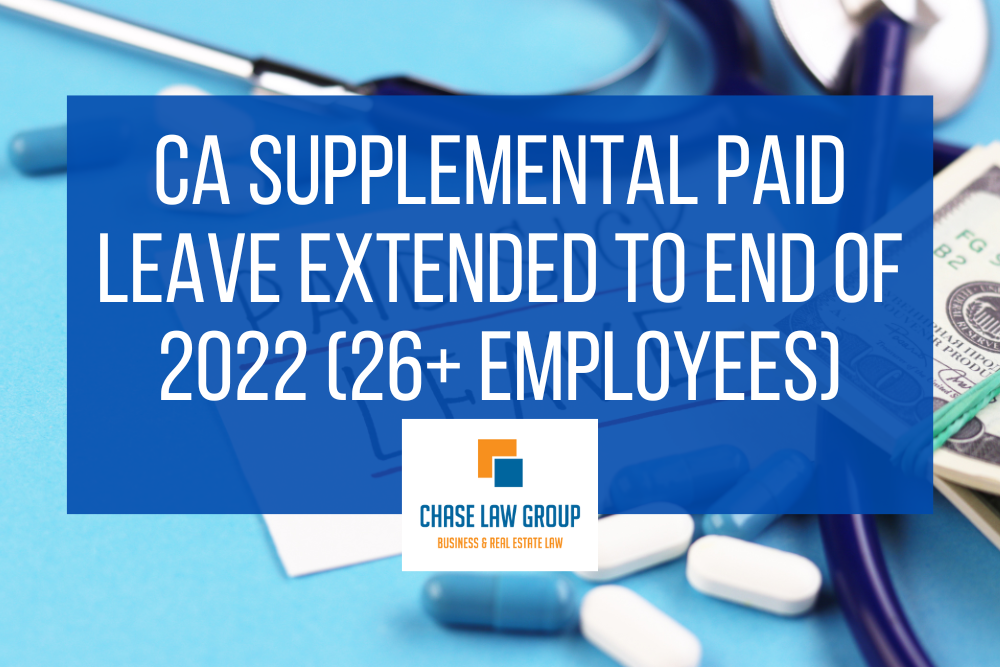
Governor Newsom has signed AB 152 which extends an employer’s (with 26 or more employees) obligation to provide Covid-19 Supplemental Paid Sick Leave (“SPSL”) through December 31, 2022. The prior law covering SPSL expired on September 30, 2022. Although the new law extends paid leave through the end of this year, it does not create any additional benefits or leave that otherwise existed under the prior SPSL law that expired September 30, 2022. Thus, if an employee already used their available banks of time under the prior SPSL law, no additional SPSL leave need be provided. For a complete breakdown... READ MORE
The Future of Franchising Under the FAST Recovery Act
By Admin September 21, 2022 Category: Business Law

The California legislature has passed, and Governor Newsom has signed into law, AB257—the “Fast Food Accountability and Standards Recovery Act” or “FAST Recovery Act.” The FAST Recovery Act tentatively establishes a new Fast Food Council within the California Department of Industrial Relations, but the council will not have full authority until the Director of Industrial Relations receives a petition signed by at least 10,000 California fast-food employees approving creation of the council. The Fast Food Council will have ten members, eight of whom must meet certain criteria (such as representing fast-food restaurant franchisors, franchisees, or employees), and will be appointed... READ MORE

Are you a woman-owned business? Getting certified can open the door to new opportunities. Having a women-owned business certification can help you build trust to set yourself apart from the competition and gain access to lucrative private and government contracts. There are several different types of certifications. Federal programs often look to do business with Women-Owned Small Business (WOSB) and Economically Disadvantaged Women-Owned Small Business (EDWOSB) and the private sector accepts the Women’s Business Enterprise (WBE) certification. Build Credibility and Boost Visibility Certification places your business in a database of suppliers used by private and government agencies when they’re contracting... READ MORE
The ABCs of California’s Requirement for Reimbursing Employee’s Expenses
By Admin August 23, 2022 Category: Business Law
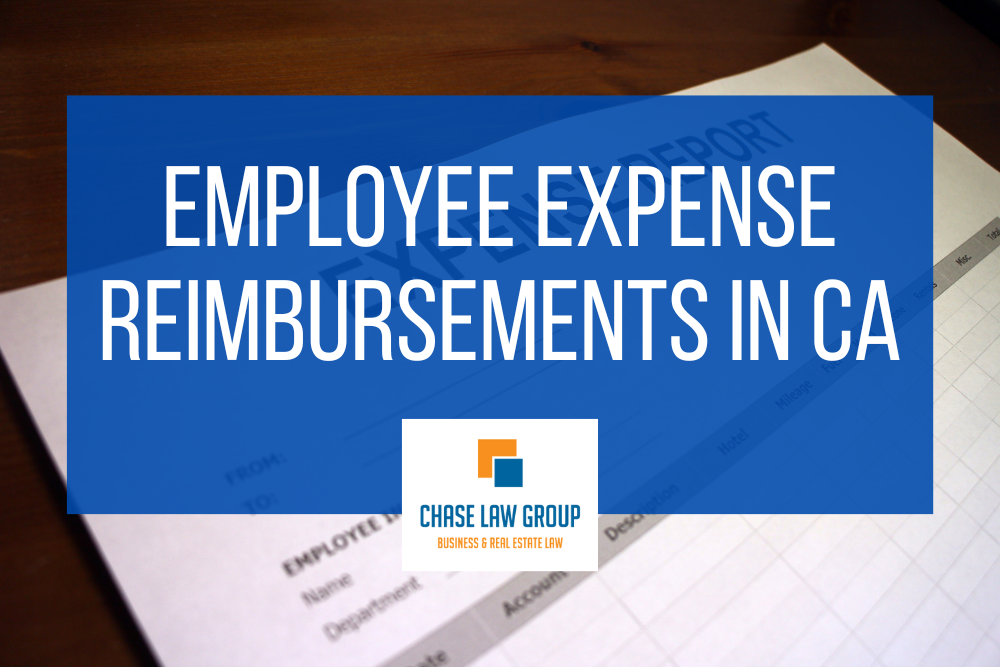
California employers are required to reimburse their employees for “all necessary business expenditures or losses incurred by the employee in direct consequence of the discharge of his or her duties.” (See California Labor Code section 2802.) Employers failing to properly reimburse their employees for work-related expenses risk exposure for the unreimbursed expense, attorneys fees, and possibly a Private Attorney General (PAGA) claim or class action if the practice of not reimbursing employees is widespread. Importantly, employers are obligated to proactively determine whether an employee is incurring expenses and cannot simply rely upon the argument that the employee never requested reimbursement.... READ MORE
US Supreme Court Issues Significant Decision Permitting Arbitration of Individual PAGA Claims
By Admin June 23, 2022 Category: Business Law
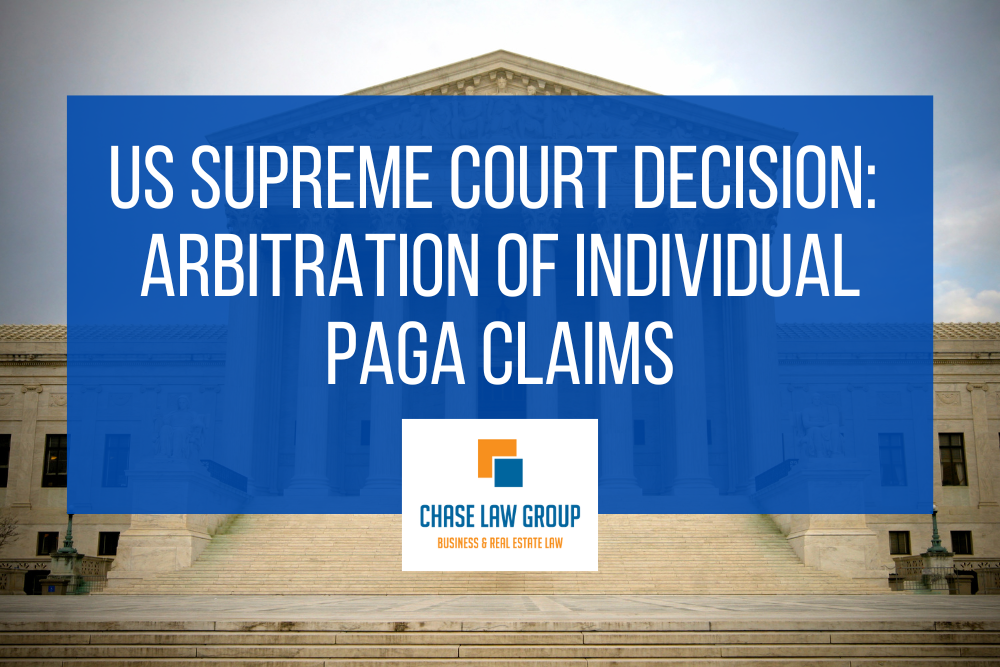
In a significant victory for California employers, earlier this month the US Supreme court issued a decision in Viking River Cruises v. Moriana, that allows California employers to compel arbitration of Private Attorney General Act (“PAGA”) based claims of an individual and obtain a dismissal of all other aggrieved PAGA employees’ claims. The impact of the decision could potentially result in greatly diminishing an employer’s exposure for penalties under PAGA. How PAGA Claims Were Litigated Prior to the Viking River Cruises Decision Prior to Viking River Cruises, under PAGA, an individual Plaintiff could bring a PAGA claim of their own as well as on... READ MORE
California Employment Law: Changes and Upcoming Deadlines
By Admin June 20, 2022 Category: Business Law
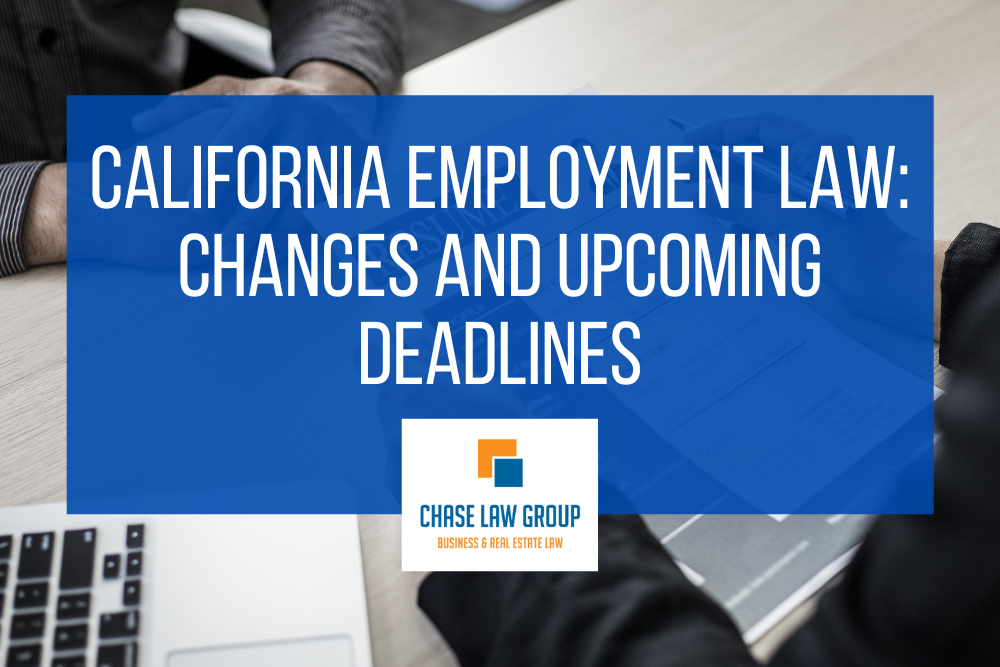
This month we remind you of upcoming changes and deadlines coming at the end of this month related to California employment law and discuss a recent California decision impacting meal and rest period violation and premium pay reporting requirements. Increase in City of Los Angeles and Unincorporated County of Los Angeles Minimum Wage Requirements Effective July 1, 2022 Effective July 1, 2022, minimum wage for employees working within the City of Los Angeles will increase from $15.00 per hour to $16.04 per hour. The City of Los Angeles minimum wage rate applies to any employees who perform at least two... READ MORE
Give Me A Break: Avoid The Pitfalls of Meal and Rest Break Violations
By Admin May 16, 2022 Category: Business Law

A common wage and hour issue targeted by savvy Plaintiff’s employment attorneys is whether employers correctly and accurately provide meal and rest periods to their non exempt employees. Under California law, an employee is entitled to an hour of pay for any missed or interrupted meal or rest period that an employee is not provided each day (for a maximum limit of two hours of penalty per day) going back over four years. Additionally, if the meal and rest period violations occur across the board to all or many employees, such violations can serve as a basis for a Private... READ MORE

